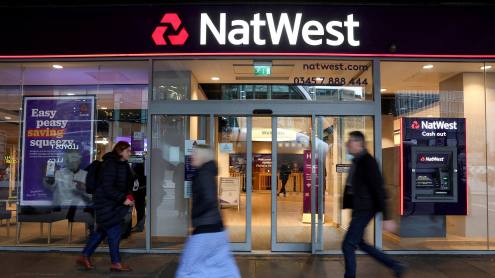Initial public offerings in Europe are poised to reach their best first quarter since 2021, with companies raising $3.2bn in IPOs since January, according to data from the London Stock Exchange Group.
As reported by the Financial Times, the expectation of interest rate cuts, coupled with fresh stock market highs, is prompting renewed optimism for a prolonged rebound in listings.
The Stoxx Europe 600 index is up 5 per cent this year, climbing by almost a fifth since the start of 2023. Meanwhile, Germany’s Dax and France’s CAC 40 have hit record highs, contributing to the positive sentiment.
The funds raised have more than doubled compared to the same period last year. Except for 2021, when listings in both Europe and the US were buoyed by interest rate cuts, European IPOs this quarter have surpassed fundraising levels observed at any comparable point since 2015.
Despite these positive trends, some bankers have cautioned that for the market to gain further momentum, pricing and success in the aftermarket will be crucial.
According to the FT, several high-profile European companies are considering IPOs should stock markets continue to trend higher. Private equity group CVC, Italian luxury sports shoe brand Golden Goose and Puig, the Spanish beauty and fashion group behind brands such as Charlotte Tilbury, have all signalled plans to list.
In addition, the market outlook may improve further if the European Central Bank decides to cut interest rates. The ECB last week hinted that June is the earliest it is likely to cut rates, after it reduced its inflation forecasts for this year and next.
—
The Bank of Japan is widely expected to end negative interest rates in the coming weeks, driven by expectations of significant wage growth that it hopes will persuade consumers to spend more, boosting demand and prices after years of economic stagnation and deflation.
Data released last month suggested that Japan’s economy slipped into a recession in the fourth quarter of 2023 due to weak domestic demand. However, the initially reported 0.4 per cent decline in gross domestic product has been revised today to show 0.4 per cent growth, meaning that the country’s economy narrowly avoided a recession.
According to economists and bond traders polled by Bloomberg, governor Kazuo Ueda is forecast to raise the short-term rate from -0.1 per cent either next week or by April, which would be the first rate hike in Japan since 2007.
As it ends negative rates and reaches a sustainable target of 2 per cent inflation, the central bank is also likely to gradually reduce its extensive stimulus programme. As part of its strategy to pump money into the economy, the central bank’s purchasing of government bonds, and riskier assets such as exchange-traded funds and trust fund investments in property, led to a substantial increase in its balance sheet, reaching around 120 per cent of the country’s GDP.
—
China’s regulators have asked the country’s banks to step up their financing support for state-backed property developer China Vanke and have called on its creditors to consider a private debt maturity extension, as reported by Reuters citing two anonymous sources familiar with the matter.
Investors have been offloading Vanke stocks and bonds in recent weeks over concerns about its liquidity, amid reports that the developer, previously seen by the market as financially sound, was seeking a debt maturity extension with some insurers.
Concern about Vanke’s financial health comes after a series of high-profile defaults by Chinese developers, which led to the failures of giants China Evergrande Group and Country Garden, after the country’s property sector slipped into a debt crisis in 2021. Analysts warn that any repayment troubles at Vanke, one of the few remaining Chinese developers with investment-grade credit ratings, could further erode market confidence.
—
Australia’s economy is set up for interest rate cuts in 2024 and a “soft landing” following an extended period of inflation, according to Macquarie Group CEO Shemara Wikramanayake.
Speaking at the Australian Financial Review Business Summit on Monday, Wikramanayake pointed out that the country’s unemployment rate is just below its pre-Covid level and inflation has decelerated.
“Central bankers seem to be getting to a point where they can now reduce rates later this year and deliver that soft landing that really none of us were forecasting,” she said.







